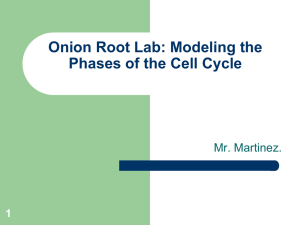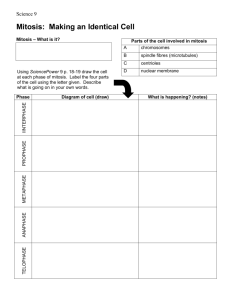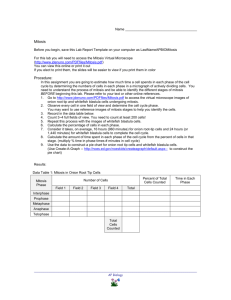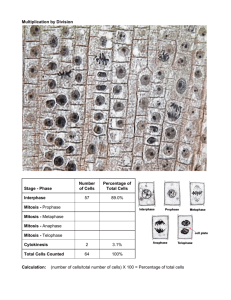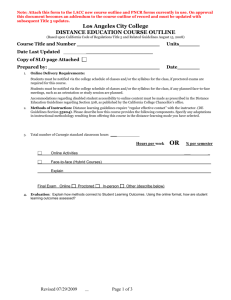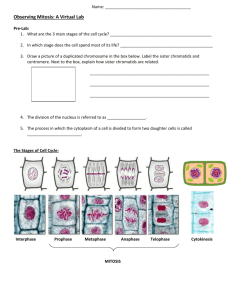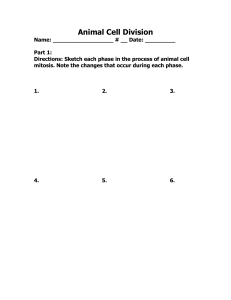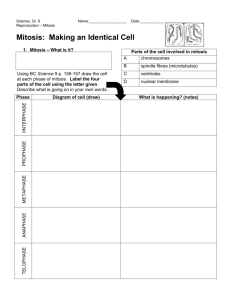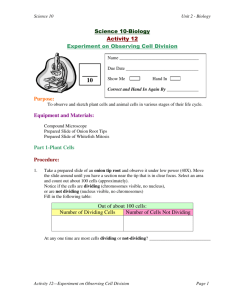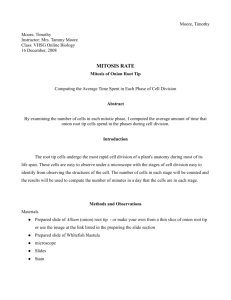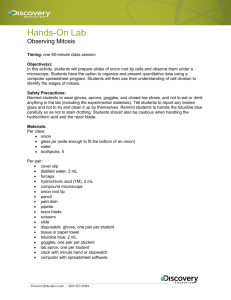BIOLOGY Mitosis Lab - New Jersey Center for Teaching and Learning
advertisement
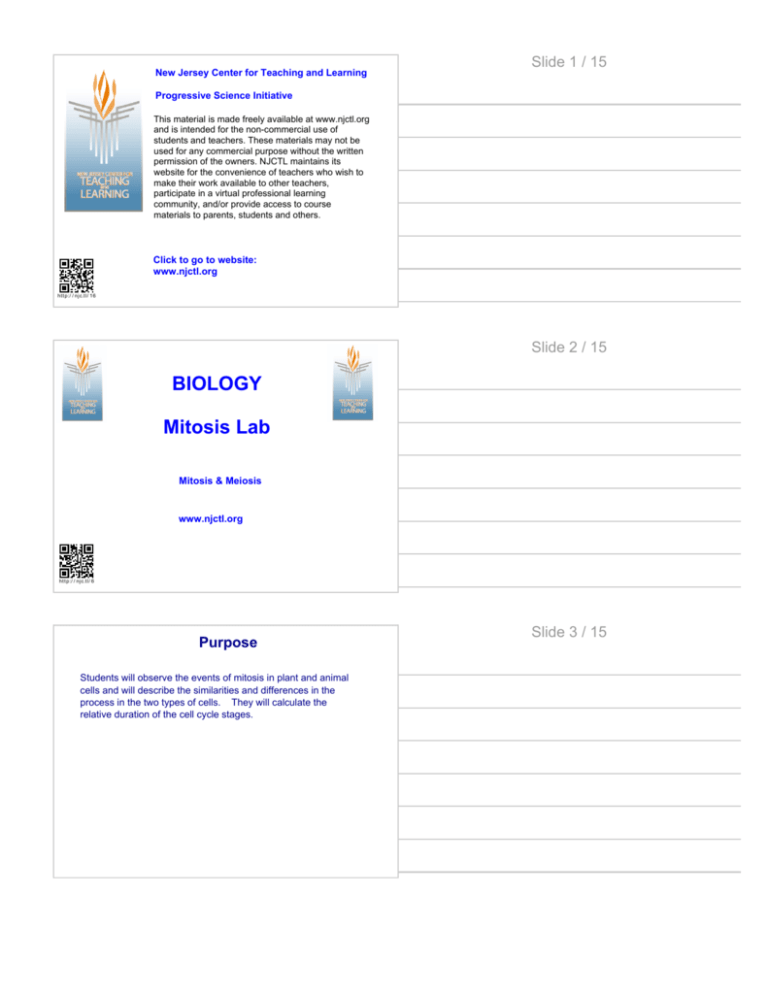
New Jersey Center for Teaching and Learning Slide 1 / 15 Progressive Science Initiative This material is made freely available at www.njctl.org and is intended for the non-commercial use of students and teachers. These materials may not be used for any commercial purpose without the written permission of the owners. NJCTL maintains its website for the convenience of teachers who wish to make their work available to other teachers, participate in a virtual professional learning community, and/or provide access to course materials to parents, students and others. Click to go to website: www.njctl.org http:/ / njc.tl/ 16 Slide 2 / 15 BIOLOGY Mitosis Lab Mitosis & Meiosis www.njctl.org http:/ / njc.tl/ 6 Purpose Students will observe the events of mitosis in plant and animal cells and will describe the similarities and differences in the process in the two types of cells. They will calculate the relative duration of the cell cycle stages. Slide 3 / 15 Materials Slide 4 / 15 Preserved slides of an onion root tip Preserved slides of whitefish blastula Compound Microscope Procedure A: Slide 5 / 15 Observing Mitosis in Plant and Animal Cells Step 1 Obtain a microscope from the storage cabinet and place it on your lab table. Step 2 Obtain a preserved slide of an onion root tip and one of a whitefish blastula. Procedure A: Observing Mitosis in Plant and Animal Cells Step 3 Review your smartnotebook regarding the different phases of mitosis. You may want to use the sketches and the pictures below as a guide to help you identify the different stages. Slide 6 / 15 Procedure A: Slide 7 / 15 Observing Mitosis in Plant and Animal Cells Step 4 Examine the onion root tip slide first under low power then switch to high power to study individual cells. Using your Smart Notebook and the pictures above, locate and sketch one cell in each phase of mitosis. Label each drawing with the phase, the type of organism (onion root tip or whitefish blastula), and the magnification. Repeat this with the slide of the whitefish blastula. Procedure B: Slide 8 / 15 Calculating Time for Cell Replication Note: The length of the cell cycle for cells in actively dividing onion root tips is approximately 24 hours. You will determine how many cells are in each phase in your field of view. From this, you can infer the percentage of time each cell spends in each phase. This part of the lab is best done with a partner. One partner calls out the phases the cells are in and the other partner records them. Step 1 Observe every cell in one high-power field of view and determine which phase of the cell cycle it is in. When you have observed and recorded all the cells in one field of view, you should switch places with your partner. Your partner will now observe cells in a second field of view and call them out to you and you will record them. You should count at least two full fields of view and at least 200 cells. If you have not counted at least 200 cells, count a third field of view. Record your data in Table 1. Procedure B: Calculating Time for Cell Replication Step 2 Calculate the percentage of cells in each phase and record your results in Table 1. Let’s say that it takes, on average, 24 hours (1,440 minutes) for onion root tip cells to complete the cell cycle. Using this information, you can calculate the amount of time spent in each phase of the cell cycle from the percentage of cells in each phase. % of cells in stage x 1,440 minutes = minutes of cell cycle spent in stage. Slide 9 / 15 Slide 10 / 15 Data Field 1 Field 2 Field 3 # of Cells # of Cells # of Cells Percent of Total Time in Total Cells Each Stage # of Cells Counted Interphase Prophase Prometaph ase Metaphase Anaphase Telophase Slide 11 / 15 Mitosis Lab Analysis Grade: «grade» Subject:«subject» Date: «date» 1 Describe the main events that occur in each phase of mitosis. Students type their answers here Slide 12 / 15 2 What is happening in the cell during interphase? Slide 13 / 15 Students type their answers here 3 How does mitosis differ in plant and animal cells? Slide 14 / 15 Students type their answers here 4 Based on your data in Table 1, what can you infer about the relative length of time an onion root tip cell spends in each stage of cell division? Students type their answers here Slide 15 / 15
